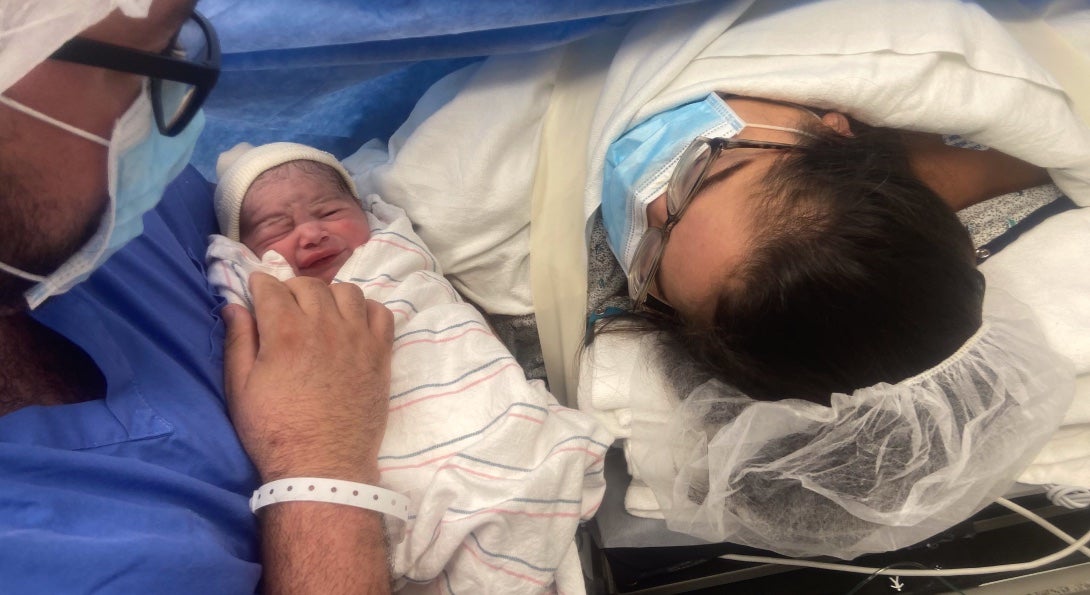Strengthening maternal and child health in the pandemic

Story text
COVID-19 is a “cruel and radical teacher,” writes a research team including SPH’s Arden Handler, DrPH.
The past year has exposed major gaps in the maternal and child health safety net and highlighted the burdens borne by people living in low-resource communities. In “Setting the Agenda for Reproductive and Maternal Health in the Era of COVID19,” Handler and co-authors outline eight lessons learned in the pandemic and recommendations for strengthening maternal and child health.
Story text
COVID-19 has exposed what we have all know for a very long time in the U.S., that structural inequities of racism, classism, sexism, heterosexism and ableism determine who in this country has access to healthcare and who has access to the social determinants of health that promote health and well-being,” said Handler, a professor of community health sciences and director of the UIC Center of Excellence in Maternal and Child Health.
| Director, UIC Center of Excellence in Maternal and Child Health
Story text, continued.
The commentary in the Maternal and Child Health journal offers eight lessons and calls to action:
Communities of color
Lesson 1: Recognition that COVID-19 hits communities of color hardest, compounded by longstanding health inequities caused by systemic racism.
Call to action: Advocate for universal mandates for timely reporting of race- and class-related data, now and during future disasters, and create accountability measures to ensure equitable distribution of resources.
Impact on women
Lesson 2: Men may be more susceptible to infection and death in this pandemic, but women have experienced the harshest social, economic and mental health challenges.
Call to action: Build gender-specific data, with a focus on race and ethnicity, and expand research and policy agendas for women’s health, domestic violence, Black maternal health and mental health.
Systems and structures
Lesson 3: The pandemic has exposed major gaps in public health and healthcare systems.
Call to action: Increase federal funding of the state Title V Maternal and Child Health block grant, increase the wages and benefits of the MCH workforce, and develop initiatives to address preparedness and response for MCH prior to the onset of the disasters.
Sexual and reproductive health
Lesson 4: The healthcare system does not adequately address sexual and reproductive health.
Call to action: Oppose all efforts to exploit the COVID-19 pandemic and other crises to restrict women’s access to legal sexual and reproductive health services.
Maternal healthcare
Lesson 5: Fault lines in maternal care in the U.S. are deepening, from the lack of diversity in the healthcare workforce to discrimination in healthcare to gaps in post-partum care.
Call to action: Transform maternity care to make prenatal care, childbirth, postpartum care, and motherhood safer and more holistic for everyone.
Medicaid
Lesson 6: Medicaid reforms are necessary to create lasting positive effects on maternal health.
Call to action: Key policy changes include expanding telehealth reimbursement, extending Medicaid coverage to one year postpartum, broadening participation for pregnancy-related Medicaid and supporting continued Medicaid expansion under the Affordable Care Act.
Policy changes
Lesson 7: The pandemic has spurred momentum to bring about social and health policy changes previously deemed infeasible.
Call to action: Continue efforts to achieve the health and well-being of female workers with low wages and families through policies including fair pay, paid leave and sick days, paid family leave, baby bonds/monthly children’s allowances, and supplemental income.
The realities of a global pandemic
Lesson 8: COVID-19 brings to the fore the concept that we are all inextricably connected.
Call to action: The most radical lesson of COVID-19 is we are all in this together. From the bus driver, to the teacher, to the nurse, we all need to have access to health care and the other social determinants of health to ensure health and well-being for everyone.
“Going forward, it is essential to fully address these structural inequities to eliminate inequities in health outcomes including maternal and infant morbidity and mortality,” Handler said. “Without this upstream focus, we will be stuck in the downstream abyss, with little progress made.”